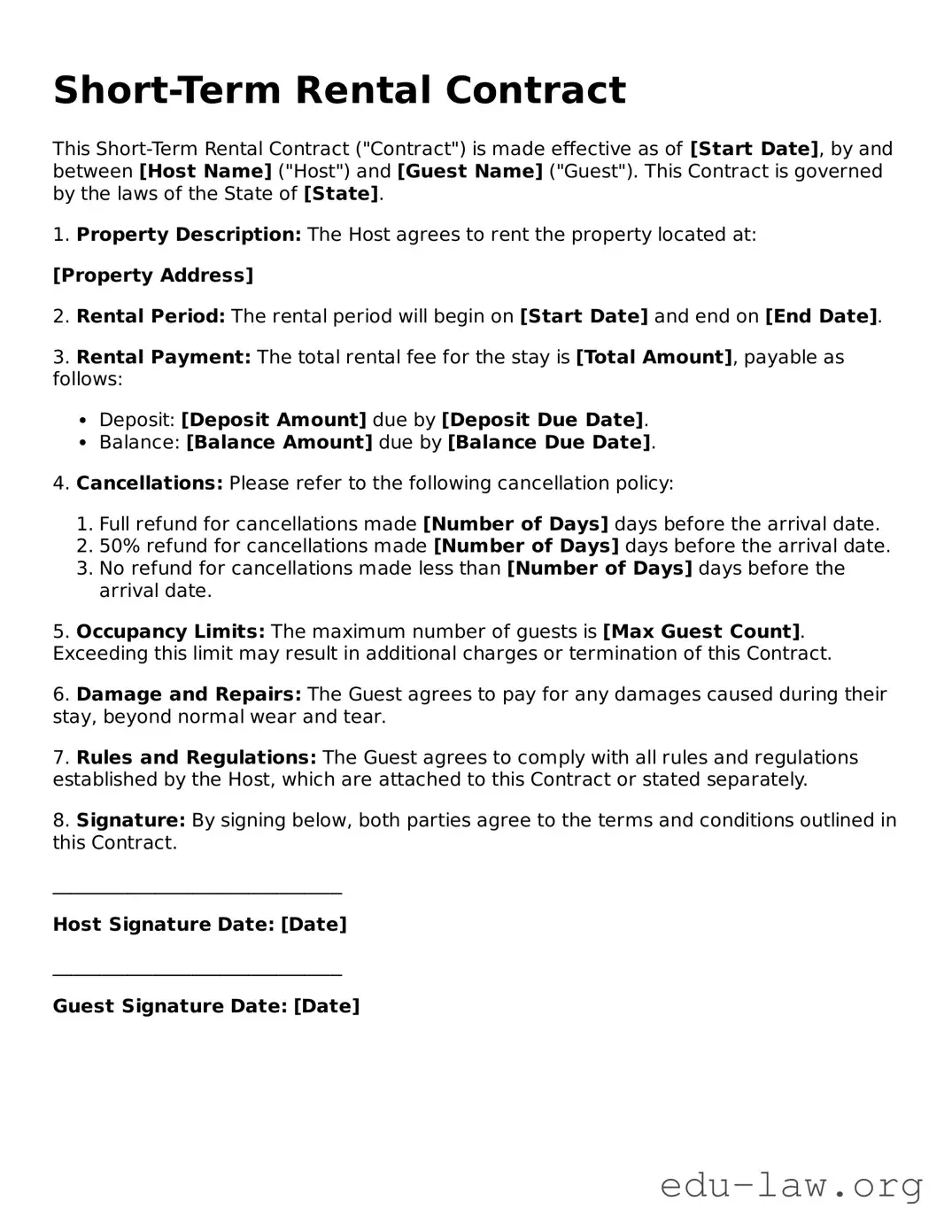What is a Short-Term Rental Contract?
A Short-Term Rental Contract is a legal document that outlines the terms and conditions under which a property owner rents out their property for a short period, typically less than 30 days. This contract protects both the property owner and the renter by detailing obligations, payment terms, and rules.
Who needs a Short-Term Rental Contract?
Anyone renting out a property for a short duration should consider using a Short-Term Rental Contract. Whether you are an individual renting out a spare room or a property manager overseeing multiple units, a well-crafted contract establishes clear expectations and helps prevent misunderstandings.
What key terms should be included in the contract?
A comprehensive Short-Term Rental Contract should cover essential elements like rental dates, payment details, security deposits, cancellation policies, house rules, guest limits, and liability disclaimers. This thoroughness ensures that all parties understand their rights and responsibilities.
How does a Short-Term Rental Contract protect property owners?
The contract serves as a legal safeguard for property owners. It outlines their policies and provides an avenue for addressing potential issues. By establishing guidelines for behavior and usage of the property, owners can mitigate risks associated with short-term rentals, such as damage or excessive noise.
Can a Short-Term Rental Contract be modified after signing?
Yes, but modifications should be approached carefully. Both parties must agree to any changes, ideally in writing. This not only maintains clarity but also ensures that any alterations do not create disputes down the line.
What happens if a guest violates the contract?
If a guest violates the terms of the Short-Term Rental Contract, the property owner typically has the right to take specific actions. This could include terminating the rental agreement, charging fees for damages, or even pursuing legal action in severe cases. Clear enforcement of the terms is crucial.
Is a Short-Term Rental Contract necessary if using a rental platform?
While many rental platforms provide their own agreements, having a separate Short-Term Rental Contract can offer additional protection. It allows you to customize the terms to fit your specific property and circumstances and reinforces the legal basis of the rental agreement.
Are there penalties for not having a Short-Term Rental Contract?
Without a Short-Term Rental Contract, property owners may face challenges in enforcing rules, collecting payments, or addressing damages. This lack of protection can lead to financial loss or legal complications if issues arise. It’s advisable to have a contract in place to avoid these potential pitfalls.
